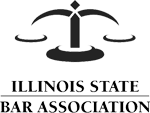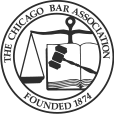What It Means for Pedestrians, Cyclists, and Safer Streets Across the City
The City of Chicago is expanding its network of speed cameras in a determined effort to crack down on reckless driving and reduce crashes near schools and parks. With seven new locations announced this summer, Chicago has already installed 34 additional speed cameras in 2025, with 16 more planned by the end of the year. City officials say this push is rooted in data and driven by urgent safety concerns voiced by community members across the city.
At Keating Law Offices, we have long supported measures that protect pedestrians and cyclists. As Chicago’s leading bicycle accident law firm, we have seen firsthand the devastating impact of traffic crashes when drivers ignore speed limits or fail to yield the right of way. Speed cameras are far from a complete solution, but they are an important tool in making sure people slow down and share the road responsibly.
Why Chicago Is Adding So Many New Cameras
The recent rollout is part of a compromise plan tied to Mayor Brandon Johnson’s 2025 budget. After the City Council rejected property tax increases, speed cameras became one way to generate additional revenue for the city. City leaders estimate the expanded program could bring in roughly $11.4 million.
But Transportation Commissioner Tom Carney made it clear that these cameras are primarily about safety. He explained to a City Council committee that behind every new camera location are local parents, principals, and neighbors who have repeatedly raised the alarm about dangerous driving near their schools and parks. Many of these requests had been sitting for years without action. By finally adding cameras, the city hopes to protect the most vulnerable road users and respond to areas with documented safety problems.
The locations are chosen based on crash data and community input, targeting zones within 660 feet of a school or park, where state law permits the use of cameras. The system uses a graduated fine structure: drivers caught speeding 6 to 10 miles over the limit face a $35 ticket, while speeds 11 miles or more over trigger a $100 fine.
How the Speed Camera System Works in Chicago
Once a camera is installed, a 30-day warning period begins. Drivers exceeding speed thresholds during this time receive notices in the mail, informing them that they were recorded, but without issuing a ticket. This is followed by a brief blackout period, designed to make sure all warning notices have been delivered before actual citations begin.
The cameras then fully transition to enforcement. Near schools, this happens from 7 a.m. to 7 p.m. on weekdays when school is in session. Around parks, enforcement hours typically run from 6 a.m. to 11 p.m. every day.
Commissioner Carney highlighted how cities like New York, with over 2,300 speed cameras, have seen significant reductions in crashes and traffic fatalities. Chicago’s expanded network now totals more than 200 cameras, still a fraction of New York’s but a major step up from past levels.
Controversy Around Automated Enforcement
Speed cameras are never without critics. Some residents worry they are primarily a way to raise revenue rather than genuinely make streets safer. Others question whether cameras discourage reckless driving in the long term or simply penalize drivers after the fact.
There is also debate over the lowered threshold introduced by former Mayor Lori Lightfoot, which tickets drivers going just 6 miles over the speed limit. That policy dramatically increased the number of tickets issued, sparking concerns that lower-income drivers would be disproportionately affected.
However, the data tells a story worth considering. When cameras are installed, average speeds drop. Fewer people are hurt or killed by drivers. Over time, the number of tickets at each camera typically declines, suggesting drivers adjust their behavior. Commissioner Carney told aldermen this year that after cameras go live, crashes tend to decrease and people slow down.
Why This Matters So Much for Chicago Pedestrians and Cyclists
As attorneys who represent injured cyclists and pedestrians, we have seen countless times how devastating these crashes can be for victims and their loved ones. At city driving speeds, the difference of a few miles per hour can be the difference between life and death.
Studies consistently show that a person hit by a vehicle traveling 30 miles per hour is far more likely to die than someone struck at 20 miles per hour. By encouraging drivers to obey speed limits, speed cameras help prevent the kinds of high-speed collisions that lead to catastrophic injuries.
More broadly, speed enforcement makes streets more comfortable for people on foot or on bikes. It increases the chances that parents will feel safe walking their children to school or that cyclists will choose to ride on a particular street rather than avoiding it. Combined with investments in protected bike lanes, pedestrian refuge islands, and improved crosswalks, cameras are part of a much larger puzzle to transform Chicago’s streets into places designed for people, not just cars.
The Role of Local Advocacy in Pushing for Safety
Chicago’s recent camera expansion is also a testament to grassroots advocacy. Many of the new locations came about because residents put pressure on their elected officials, organized meetings, and refused to accept dangerous conditions near their schools and parks. Commissioner Carney noted that there had been a backlog of aldermanic requests for cameras, each one driven by local families demanding safer streets.
At Keating Law Offices, we recognize the importance of community voices in driving these changes. Our firm’s work on measures like Dennis’s Law, which clarified that bicyclists have the same rights as drivers on Illinois roads, has always been rooted in listening to people impacted by crashes and fighting for policies that protect them.
Holding Negligent Drivers Accountable
Chicago’s streets have long been treacherous for people outside of cars. Expanding the speed camera program is one way to address this, using technology to slow down drivers and create a culture where speeding is simply not tolerated.
While speed cameras alone cannot fix every problem, they send a clear message: our city values the lives of children walking to school, families crossing to the park, and cyclists sharing the road. For anyone who has lost someone in a crash or who lives daily with the fear of being hit, these cameras represent an important move in the right direction.
If you or someone you love has been injured by a negligent driver in Chicago, you deserve to understand your legal rights and options. Contact Keating Law Offices online today for a free consultation or call us at 833-CALL-KLO. Our award-winning legal team is here to help you find your way forward.
"I got hit by a car while biking last August and went to the ER. I followed all the rules and was at 0% fault. I was so stressed out about everything—medical bills, legal support, police reports, etc. I called Keating Law Offices a few days after the incident, and Jack Dassow, an associate at Keating, answered my phone call on a Saturday night. From there, everything became so easy. No upfront pay was required. Jack thoroughly answered all my questions and helped me negotiate with the insurance companies. He also volunteered to help me file property damage claims for my totaled bike. I focused solely on recovery and my work, and a few months later, Jack informed me he had obtained full policy limits from the driver's insurance company. I recommend their service to any bike lovers. They are just very experienced and will save you a lot of time and energy." — Elisa X.C., ⭐⭐⭐⭐⭐








